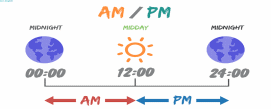поурочный план в 3 классе по обновленному содержанию
Создайте Ваш сайт учителя Видеоуроки Олимпиады Вебинары для учителей
План урока в 3 классе
Вы уже знаете о суперспособностях современного учителя?
Тратить минимум сил на подготовку и проведение уроков.
Быстро и объективно проверять знания учащихся.
Сделать изучение нового материала максимально понятным.
Избавить себя от подбора заданий и их проверки после уроков.
Наладить дисциплину на своих уроках.
Получить возможность работать творчески.
Просмотр содержимого документа
«План урока в 3 классе»
Похожие файлы
Полезное для учителя
Распродажа видеоуроков!
1510 руб.
2510 руб.
1850 руб.
3080 руб.
1610 руб.
2690 руб.
1510 руб.
2510 руб.
ПОЛУЧИТЕ СВИДЕТЕЛЬСТВО МГНОВЕННО
* Свидетельство о публикации выдается БЕСПЛАТНО, СРАЗУ же после добавления Вами Вашей работы на сайт
Удобный поиск материалов для учителей
Проверка свидетельства

















